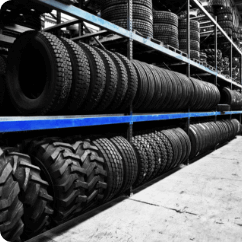Best Cheap All Terrain Tires
Buying new tires is an annoying process for most people, and it becomes even less entertaining when the costs are high. The good news is that there are affordable tires in every category, including beefy all terrain tires. Your off-roader needs special tires to conquer rough trails and terrain, so it’s best to find a tire that is high quality in addition to being affordable. We’ve scoured the internet to find the best deals on tires and brands that consistently perform well for less money. Here are our picks for the best all terrain tires.To get more news about best tires for off the road, you can visit gofortunetire.com official website.
When we research cheap all-terrain tires, we have to take into account the tires’ lifespan, customer reviews, and availability in addition to the cost. We steer clear of tires that have few or no customer reviews and try to balance in things like longevity and warranty when making our decisions.
All terrain vehicles are a completely different animal than standard passenger vehicles. They leave the factory with larger tires, and while you may like the tires your off-roader has now, there’s nothing stopping you from changing to a tire brand or type that fits your driving style more appropriately. Just because a Jeep has all-terrain tires from the factory does not mean you can’t switch to a tire model that provides better on-road performance if you spend more time driving on pavement.
When Should You Replace All Terrain Tires?
Some people mistakenly look at beefy all-terrain tires and assume that they’ll last significantly longer than traditional tires. That may be true in some cases, but all-terrain tires usually live a rougher life and are put through much more demanding driving scenarios than standard passenger tires. For this reason, it’s important to understand that your driving style and where you drive will have a big impact on your tires’ longevity.
Some all-terrain tires carry warranties that stretch to well over 60,000 miles, but some are only rated at about 20,000 of usage. That’s about the average for the more capable A/T options on the tire rack. Weekend and occasional off-roaders can get tires with longer road wear ratings by sacrificing some of that off-pavement capability. And some people keep both on- and off-road tires for their rigs and swap out when hitting the trail and hitting the streets.
What most people are not aware of is that tires also have a usable shelf life. They can “go bad” after their “use by” date. That date, per Department of Transportation standards, is five years from the week of manufacture. To find out if your tires are out of date, look for the raised DOT numbers on the sidewall. These are required by law and consist of three sets of four numbers each. The first two sets indicate compounds and other information. The third set is the date of manufacture. The first two numbers are the week the tire was made and the second two are the year. A date code of 3217, for example, indicates the tire was manufactured in the 37th week of 2017 (between September 11 and 17th).
More information about your tires can be learned from other inclusions on the sidewall and sales information. Tires are printed with Uniform Tire Quality Grade (UTQG) ratings. These are a voluntary standard tire manufacturers have created to give quick indicators of how the tire is expected to be used. The UTQG usually appears after the tire’s name as a three-digit code. This code usually looks like “300 A B” or similar. The number is a durability rating, the first letter is the traction rating for wet pavement, and the third letter is the tire’s high-temperature resistance rating.
Things to remember about all-terrain tires are that first, their date code is often more important than mileage totals. After a tire gets beyond five years of age, the compounds in it begin to change. Especially those which protect the tire from ultraviolet sunlight and other rubber-destroying things in the environment. This can be far more detrimental to A/T tires than can tread wear. Further, many all-terrain tires do not have a UTQG rating at all, as they often have low life expectations or aren’t subjected to wet pavement tests. Many manufacturers also do not include road hazard warranties with all-terrain tires as they are more likely to be punctured due to rough use than are street tires.